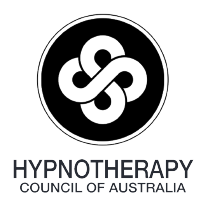
Trapped in a loop of negative thoughts? Hypnotherapy can help you rewire your inner dialogue, and create a calmer, more confident mindset.
Negative Thinking Feels Like a Trap. Hypnotherapy Offers a Way Out.
If you’ve ever found yourself stuck in a loop of self-criticism, fear, or worst-case scenarios, you’re not alone. Negative thinking is often subtle, automatic, and relentless.
You might be thinking:
- “I’m not good enough.”
- “What if everything goes wrong?”
- “Why can’t I just get it right?”
These thoughts become habitual — and they don’t just affect your mood. They shape your choices, confidence, sleep, relationships, and even your physical health. But here’s the good news: you can break the cycle. And hypnotherapy is a powerful tool for doing just that — by going straight to the source: your subconscious mind.
Why Negative Thinking Becomes a Cycle
The human brain is wired to notice threats — it’s a survival instinct. But over time, especially during chronic stress or trauma, the brain can get stuck in a negativity bias.
That means your mind:
- Expects failure or rejection
- Focuses on flaws over strengths
- Replays mistakes
- Struggles to trust good experiences
- This creates a feedback loop:
Negative thoughts → Negative emotions → Reinforced beliefs → More negative thoughts.
Hypnotherapy breaks this loop where it starts — deep within your inner mental patterns.
How Hypnotherapy Works on Negative Thought Patterns
Hypnotherapy uses a relaxed, focused state to speak directly to the subconscious — the part of your mind that holds automatic thoughts, core beliefs, and emotional responses.
During a session, your hypnotherapist may guide you to:
- Identify the original source of recurring negative thoughts
- Reframe limiting beliefs into more empowering perspectives
- Create new mental associations that support confidence, calm, and resilience
- Interrupt and replace the internal critic with a voice of self-trust and strength
Instead of trying to “think positive” — hypnotherapy helps you feel different from the inside out.
Real Benefits of Rewiring Thought Patterns
Clients who use hypnotherapy for negative thinking often report:
- Less overthinking and rumination
- A calmer inner dialogue
- Improved sleep and mental focus
- Greater self-compassion and confidence
- More emotional flexibility and peace of mind
What Happens in the Brain During Hypnotherapy?
Neuroscience shows that during hypnosis:
- The default mode network (associated with self-talk and identity) becomes more flexible
- The amygdala (the brain’s fear centre) becomes less reactive
- The brain’s neuroplasticity increases — meaning it’s more open to forming new pathways
This makes hypnotherapy a uniquely effective way to rewrite persistent negative thought loops.
Is Hypnotherapy Right for You?
You might benefit if you:
- Constantly second-guess yourself
- Replay mistakes or past failures
- Struggle with self-worth or imposter syndrome
- Can’t “switch off” anxious thinking
- Want a practical way to change your mindset without years of talk therapy
Hypnotherapy helps you not only understand why you think the way you do — but also change it.
Take the First Step Toward a Quieter, Kinder Mind
You don’t have to be at war with your thoughts. You don’t have to keep pushing them away or pretending they’re not there. With hypnotherapy, you can transform your thinking and finally feel free.
Learn how hypnosis helps with anxiety and overthinking
Explore the benefits of hypnotherapy
Understand modern hypnosis techniques
Can hypnotherapy really help stop negative thoughts?
Yes. Hypnotherapy works with the subconscious to interrupt and reframe automatic negative thinking patterns that talk therapy alone may not reach.
How is this different from mindfulness or CBT?
Mindfulness and CBT work at the conscious level. Hypnotherapy goes deeper, helping you reshape beliefs and emotional triggers stored in the subconscious.
Will I lose control during a session?
No. You’re always aware and in control. Hypnosis is a relaxed, focused state that helps you access inner clarity, not a loss of awareness.
How long does it take to see changes in thinking?
Some clients notice a shift after just one session. Lasting change often occurs over 3–5 sessions, especially when combined with self-hypnosis practice.
What kinds of thoughts can hypnotherapy help with?
It helps with self-doubt, fear of failure, guilt, perfectionism, catastrophising, imposter syndrome, and any internal critical patterns that keep you stuck.
Can I use self-hypnosis at home to support the changes?
Yes! Many hypnotherapists provide recordings or teach self-hypnosis techniques you can use between sessions to reinforce positive thinking.




